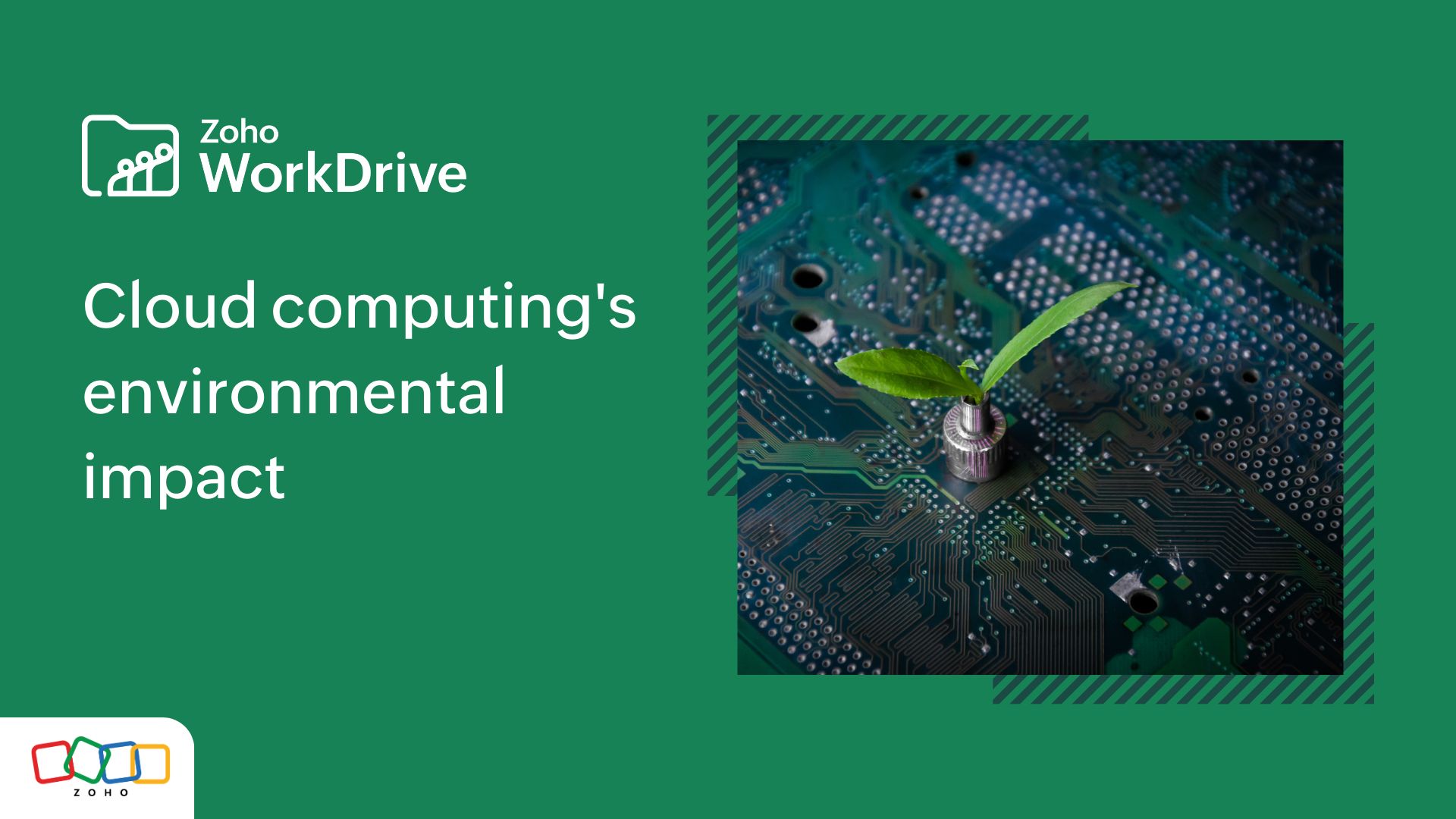The impact of cloud technology on the environment
- Last Updated : December 13, 2023
- 2.3K Views
- 3 Min Read

There is no doubt that cloud technology has improved the way businesses function. It has helped organizations of every scale to a great extent by reducing operational costs, giving them unlimited scalability, and providing better data control.
In today's article, we will take a look at how cloud computing has impacted our environment and how tech companies are tackling this.
Supports environmental proactivity:
With the advent of cloud technology, many physical products and bulky hardware have been replaced by virtual services. From paper documents moving to online files and meeting rooms being swapped for virtual conferences, the cloud has helped many companies go green while improving energy efficiency.
Cloud software also helps companies to stay connected with work and enables better remote collaboration—the last year is a testament to this. Remote work means employees don't have to travel to their office and they don't need big lit-up buildings or climate-controlled workspaces. In fact, according to a report by Carbon Trust, working from home has the potential to help companies save 3 million tones of carbon emissions a year through reduced commuting alone.
Sustainable infrastructures:
Because in-house data centers require multiple severs, backups running 24/7, and hardware and cooling systems, moving to a public cloud system makes it super-efficient. Large-scale cloud-service providers have better infrastructure, superior hardware setups, and built-in ways to achieve optimal utilization, making cloud technology a more energy-efficient option.
There are always two sides to a coin. In the last couple of years, cloud technology has experienced tremendous growth. With this advancement also came new challenges. From paper waste to e-waste and the impact of data centers on the climate, cloud technology also introduces new challenges in environmental impact.
Recycling e-waste:
The tech industry is constantly innovating and creating new products, which means there is a new gadget in the market every season. From smartphones to home appliances, there is a huge amount of e-waste being generated across the world. To tackle this issue, some companies offer an exchange of their goods when purchasing new products and a few tech giants are using recycled parts while manufacturing their new products.
Did you know: the Tokyo Organising Committee of the Olympic and Paralympic Games conducted the "Tokyo 2020 Medal Project," collecting small electronic devices to make the Olympic and Paralympic medals?
Reinventing as we go:
Though cloud technology has helped companies reduce costs and save energy, the impact of data centers on the environment is still questionable. Many cloud service providers are reinventing data center designs to reduce their carbon footprint. These centers are more eco-friendly, consuming less electricity and producing reduced carbon emissions. Some companies are also investing in artificial intelligence to help them reduce energy consumption. Cloud-based AI monitors these data centers and identifies which actions will minimize the energy consumption while satisfying company safety protocols.
In order to reduce the impact of tech development and minimize the carbon footprint, Zoho has set up solar energy panels to power not just our data centers but also our office spaces. The solar grids help us save around 72K tons of CO2 emissions per year. Besides powering the company’s own operations, the solar panel system will also help provide electricity to nearby areas.
The cloud is revolutionizing the way businesses function, and has helped businesses reinvent the way they operate, paving the way for newer technologies and innovations across industries. However, this doesn't erase the fact that it also comes with a certain amount of impact on our environment. Organizations need to build not just a successful business but also one that is sustainable.


